They Almost Made It: Excellent books that we (reluctantly) left off of our final Heavy Medal Mock Newbery Book List
On Wednesday, we unveiled the Heavy Medal Book List: 16 titles that will be discussed, argued about, and finally voted on during our Mock Newbery process. We mostly hope that our list will lead to engaging, thought-provoking discussions, and I’m sure this one’s will. But it’s also nice if, when the final Newbery results are announced on January 22nd, we see some of the very titles we’ve just been discussing on Heavy Medal. Last year, only one of the four Newbery books was on our list. The year before was better: four out of the five books made it. We’ll find out soon enough how this year’s list holds up
In the course of our hour-long final phone conversation that ended with those 16 titles, Emily and I both had to give up on books that we really felt deserve to be on a final Mock Newbery discussion list this year. And it’s very possible that one of them might wind up on the real Newbery list. As Emily frequently reminds me, she pushed hard for Honor Book MAIZY’S CHEN’S LAST CHANCE to make last year’s list, and I suppose I must have talked her out of it. My bad.
ADVERTISEMENT
ADVERTISEMENT
But we would have an even better chance if the list was bigger…maybe 22 titles? Here are six books that Emily and I would have added to this year’s HBML if only we didn’t have to keep to our limit of 15 (which turned into 16). Actually, we planned on six, but wound up with eight…oh well:
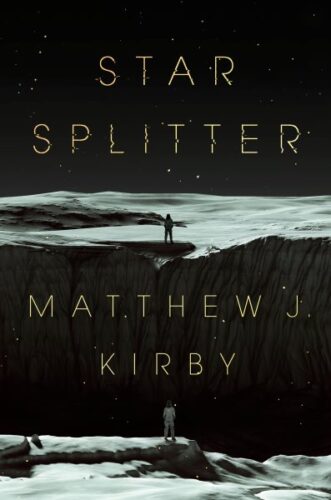 | 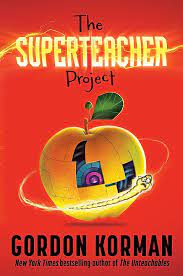 | 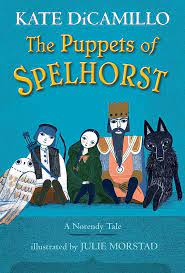 | 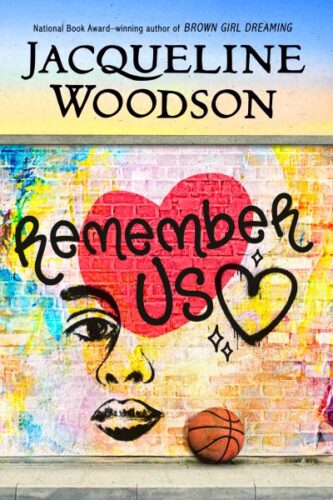 |
 | 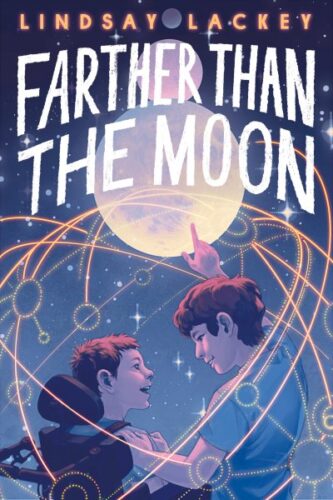 | 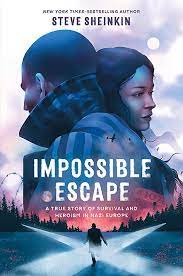 | 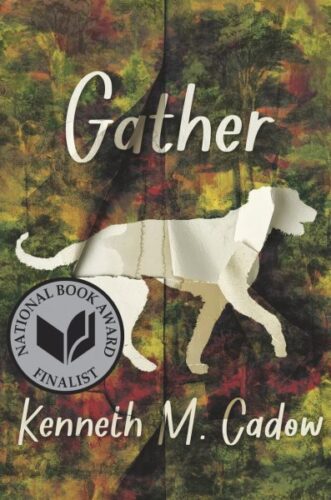 |
EMILY: STAR SPLITTER was a title I kept going back-and-forth with. I was very intrigued by the characterization and I think it was super challenging to do that (don’t want to give away any spoilers). I think it would have been really fun to compare STAR SPLITTER and GONE WOLF and from my comparison GONE WOLF did a much better job- but we’ll see what the committee says.
STEVEN: I would have loved to put REMEMBER US on the list. Partly because it’s just beautifully written, but I also like the contrast between its particular, personal plot and subtle characterizations and the broader, more dramatic elements of books like SIMON SORT OF SAYS and THE LABORS OF HERCULES BEAL.
EMILY: I will NEVER stop saying that the SUPERTEACHER PROJECT is vastly underrated. Figuring out how to characterize an AI human… adding perspectives from kids and teachers alike. Showing how confusion and fake news can arise, how kids are affected by their parents. There is so much to unload here and I’m waiting patiently for the gold medal.
ADVERTISEMENT
ADVERTISEMENT
STEVEN: While Emily bravely goes to bat for authors who have yet to receive Newbery recognition, I’ll be less daring and add another multiple honoree. Kate DiCamillo’s THE PUPPETS OF SPELHORST seems like a Newbery possibility to me. With a folklorish structure and not that many pages, she packs a lot into a book while still achieving high child appeal.
EMILY: I’ll finish off with two that I read at the last minute and was pleasantly surprised with. BEA AND THE NEW DEAL HORSE was an excellent historical fiction that studied the idea of family, loyalty and finding a new purpose. Then FARTHER THAN THE MOON was also an excellent look at outer space, disability, and the complexity of relationships. Both of these are two titles I’m recommending to all the children.
STEVEN: Okay, we said three each and now it’s four. If that’s the way it’s going to be, I’ll add a couple of titles which land on the older end of the Newbery range, but check all the Newbery criteria boxes they need to in my opinion: IMPOSSIBLE ESCAPE by Steven Sheinkin (yes, I picked another previous honoree) and GATHER by Kenneth Cadow (finally, a newer author)!
We won’t see any of the six eight books we named in our Heavy Medal Mock Newbery discussions, unless it’s in comparison to titles that did make our list, but they’re all worth reading. And worth keeping in mind when the award is finally announced. Let us know in the comments below if you have other titles that you wish were on our list…
Filed under: Heavy Medal Mock
About Steven Engelfried
Steven Engelfried was the Library Services Manager at the Wilsonville Public Library in Oregon until he retired in 2022 after 35 years as a full-time librarian. He served on the 2010 Newbery committee, chaired the 2013 Newbery Committee, and also served on the 2002 Caldecott committee. You can reach him at sengelfried@yahoo.com.
ADVERTISEMENT
ADVERTISEMENT
SLJ Blog Network
Name That LEGO Book Cover! (#53)
Review of the Day: Being Home by Traci Sorell, ill. Michaela Goade
Exclusive: Vol. 2 of The Weirn Books Is Coming in October | News
Fighting Public School Book Bans with the Civil Rights Act
North Texas Teen Book Festival 2024 Recap
ADVERTISEMENT







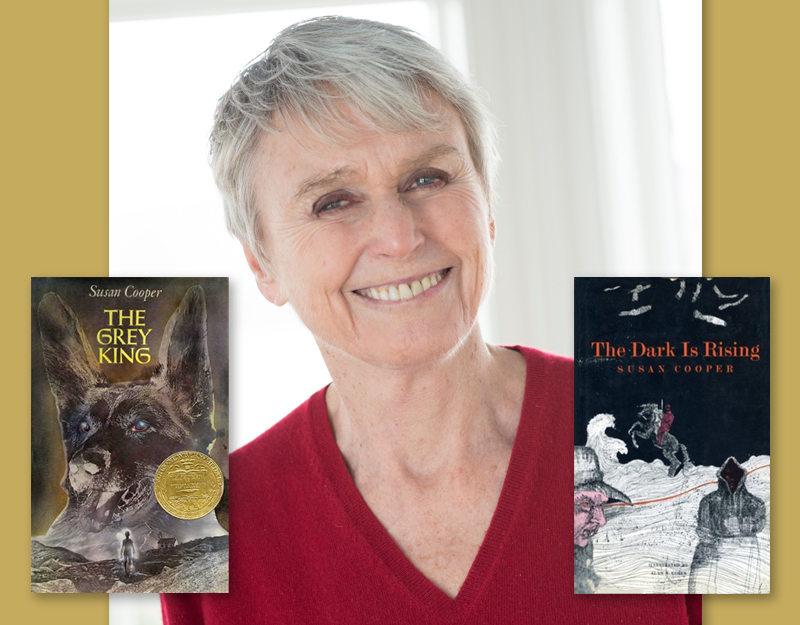
I’ve been reflecting on why we haven’t been talking about PUPPETS OF SPELHORST, and perhaps it has a little bit to do with whether a Newbery author’s work is “of its time” or whether it’s “timeless” (i.e., would have won in any year). There are plenty of multi-Newbery winners who are still writing fine books today that don’t seem much talked about. Avi (1991, 1992, 2003) has a book out this year, THE SECRET SISTERS, which has gone completely unmentioned here. We barely mentioned THE WINDEBY PUZZLE by Lois Lowry (1990, 1994). Cynthia Voigt (1983, 1984) has a book out next year. Heck, even Katherine Paterson (1978, 1979, 1981) published a book last year. It’s actually pretty rare for someone to be seen as a Newbery contender decade after decade after decade.
Now, Kate DiCamillo (2001, 2004, 2014) isn’t quite as senior as those authors, but she does turn 60 in a few months. The 13 years between Winn-Dixie and Flora is already a fairly rare accomplishment, but if PUPPETS were to win a Newbery in 2024, those 23 years between her first and last award would put her in rare company in terms of Newbery longevity and relevance. The 1997 awards were notable in recognizing both E.L. Konigsburg (first award 1968, a 29-year spread) and Eloise McGraw (first award 1953, a 44-year spread!). The only other authors I found with Newbery staying power that long were Anne Parrish (1925, 1931, 1951) and Elizabeth George Speare (1959, 1962, 1984).
It’s a bit ironic, because DiCamillo is having a bit of a spotlight moment in the grown-up literary world. During the pandemic, Ann Patchett wrote a New York Times piece basically devoted to telling the world DiCamillo is a genius, and that became an essay in These Precious Days. And this year The New Yorker aired DiCamillo’s childhood trauma in a profile. But it does seem to me that our established legends generally don’t win Newberys.
I was going to say PUPPETS didn’t make the cut because of a later publication date, but it actually came out in October just a week after ALEBRIJES and GONE WOLF. I work in a public library where the latter two are on the shelf, but PUPPETS has a very long holds list, so I haven’t gotten my hands on it yet.
Good point about publication date, Dest. The real Committee likely had their copy of PUPPETS the week it was released, since publishers will send members hard copies of books they hope will be considered. Participants in Mock Newbery’s like ours often rely on library copies, and it can be hard to get our hands on and read the fall releases, especially when they’re popular ones. So mocks probably have a bit of bias towards earlier year publications, just because of the logistics…
Good points about the lack of recent recognition for writers who won Newberys a while back. Strange (for me at least) to realize that Kate DiCamillo is moving into that territory. And it’s interesting, because I typically start my search for possible Newbery contenders by specifically looking for new books by previous winners.
While it’s always exciting to see new voices recognized, but I like the mix of old and new too. On my Caldecott year (2002) it was so cool to see Marc Simont, who had been around for many decades, win an Honor (for STRAY DOG), right alongside newer artists like David Wiesner, Brian Selznick, and Bryan Collier.
I also like in when long-established authors finally get a Newbery after being passed over so often. Richard Peck (1999, 2001), Ashley Bryan (2017), and Sid Fleischman (1987) had all written so many excellent books before their Newberys.